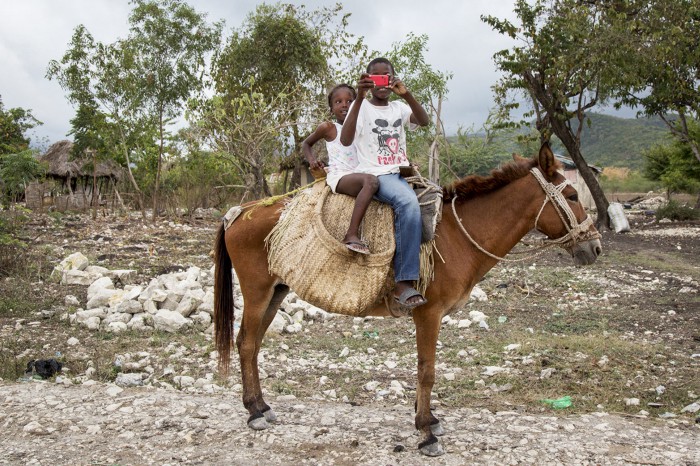
Who holds the camera helps determine what we see, and what the outcomes are. Overcoming ‘gender blindness’ requires society to see from different perspectives. Photo: Marie Arago (www.mariearago.com)
In just a few months, the novel coronavirus has upended daily life for billions of people, triggered massive job losses, and threatened lives in nearly every country on Earth. And yet, it is not just the virus itself that is novel. We know little about how the effects of the virus — and the many attempts to mitigate it — will affect groups differently, including men and women. Already there are suggestions that the virus could both hurt women in the short run, while helping them in the long run through challenging social norms that tend to advantage men.
So, in this confusing and rapidly changing environment, how can policy makers, development agencies, non-profits, and civil society respond to such a swiftly moving crisis effectively, and in ways that don’t make situations worse for the most marginalized?
A feminist approach may help. While the term ‘feminism’ has long been misunderstood — we’ll write about this, soon! — at its heart it simply means that when society limits one sex, it limits both. In other words, society will be better for women and men when both sexes have equal opportunities. A feminist approach, then, is one that starts with that goal, and works to identify ways to create opportunities for all people to thrive, regardless of identity.
Based on our own experiences working to improve gender research and policy in rural development, understanding how this crisis may affect women and men differently and making sense of appropriate responses requires three things: responsiveness to sociocultural context, the right kinds of data, and a framework for making sense of it. With these elements, we can start to build a feminist approach to this crisis, and create a more equitable world going forward.
Disasters aren’t only biological, seismic, or climatological — they’re also social.
The coronavirus presents an acute, immediate, global crisis, yet in some ways it only makes visible a multitude of crises that have been long hiding in plain sight: broken health care systems, unequal access to paid sick leave, workplace vulnerabilities, income inequality — crises that are both directly health-related, and ones with a more tenuous link. In truth, disasters are largely social, and by exposing the fault lines of inequality running through human societies, it’s often the people with the fewest advantages to begin with that are most severely impacted when disaster strikes.
After just a few weeks of practicing “social distancing” many countries are already seeing massive disparities in who is impacted and how, with many higher-paying office jobs continuing, albeit remotely, while tens of millions of lower-paid service workers are suddenly out of work entirely. While wealthier governments are stepping in with massive relief plans, undocumented workers, many of whom were already among the most vulnerable, may not only face unemployment, but do so without relief funds, or face fear of deportation even while being deemed ‘essential.’
In lower-income countries, where informal work is more predominant and governments may lack the resources for large relief spending, the inequalities exposed by the virus — and its response — are likely to be much more severe, leading to calls for massive debt relief. Regardless of country, the poorest and least resourced are often already far more likely to face chronic health issues, be underinsured, and more vulnerable to falling seriously ill with the coronavirus. And that’s assuming they haven’t already lost their jobs.
In many contexts women have less control over resources than men, may be more heavily represented in the informal economy, and often have less mobility, exposing potential vulnerabilities. Women more often tend to be responsible for informal domestic care work (for children and / or elderly parents), and globally make up a larger share of professional health care workers, potentially increasing their exposure and their work loads. Professional women who now find themselves working from home due to the lockdowns are likely to face increased distractions as they balance job tasks with care roles. For these reasons and many more, there are valid reasons to be concerned about how the current crisis could disproportionately impact women.
About the author

Devon is an agricultural development specialist with a diverse skillset covering multiple aspects of project planning, implementation, and management.
For press inquiries or for more information, email us at great@cornell.edu.





